A Kick-ass Female Perspective on Comics That’s Disturbingly Close to Real-Life: The Refrigerator Monologues by Catherynne M. Valente
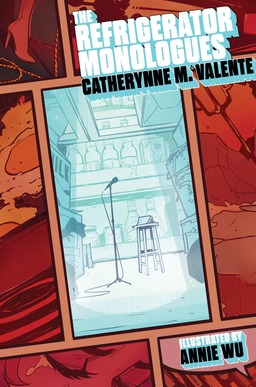 The Wonder Woman movie has received considerable buzz for depicting an interesting lead female character who actually has a personality, is not dependent on some guy to come to her rescue and truly is the star attraction; it even has a female director. It’s enough to make you forgive the silly and at this point yawn inducing CGI pyrotechnics between good and evil ending that is apparently sacrosanct in these sort of flicks. Look, I enjoyed the movie, but for all its merits it’s still a sad commentary of our times that Wonder Woman is considered somehow ground breaking. Problem is, compared to the latest crop of superhero movies (maybe even movies in general) the bar isn’t set very high.
The Wonder Woman movie has received considerable buzz for depicting an interesting lead female character who actually has a personality, is not dependent on some guy to come to her rescue and truly is the star attraction; it even has a female director. It’s enough to make you forgive the silly and at this point yawn inducing CGI pyrotechnics between good and evil ending that is apparently sacrosanct in these sort of flicks. Look, I enjoyed the movie, but for all its merits it’s still a sad commentary of our times that Wonder Woman is considered somehow ground breaking. Problem is, compared to the latest crop of superhero movies (maybe even movies in general) the bar isn’t set very high.
You want some real kick-ass female perspective on the comic book world that’s disturbingly close to real-life? Check out The Refrigerator Monologues by Catherynne M. Valente. This is a series of short stories set in shared alternate comic book universe (with characters such as Grimdark and Kid Mercury and Doctor Nocturne evoking various Marvel and DC Comics personages) linked by a sort of AA session in which deceased women (with one exception who for her own reasons hangs out among the unliving) take turns explaining how they ended up in Deadtown, i.e., thanks to some male superhero or supervillian exploit.
The title of the collection is a take-off of The Vagina Monologues — the Eve Ensler play about sex and body image told from the perspectives of a variety of women representing different ethnic, sexual and class identities — and comic book writer Gail Simone’s observation that comic book women are typically hypersexualized for a male audience and often end up “refrigerated” — killed, disabled, or otherwise rendered marginalized or powerless in order to advance a male character’s storyline. Indeed, in “Happy Birthday, Samantha Dane” the title character literally ends up in a refrigerator. (And, by the way, is just one of many great comic book kind of names that Valente invents for her cast of characters. Also by the way, it’s worth noting that in Wonder Woman a male character dies to advance our heroine’s story — perhaps an intentional inversion of the refrigerator motif?)
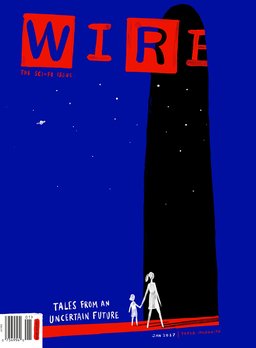
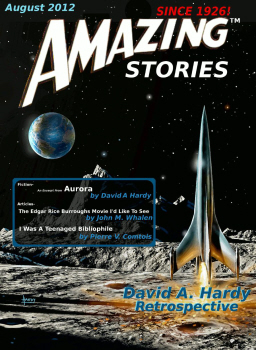
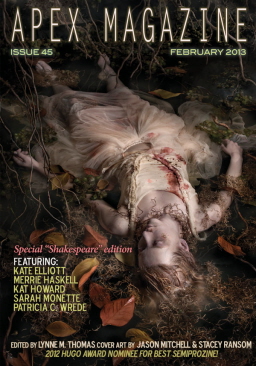
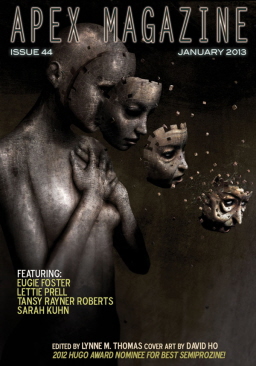

 Together again,
Together again, 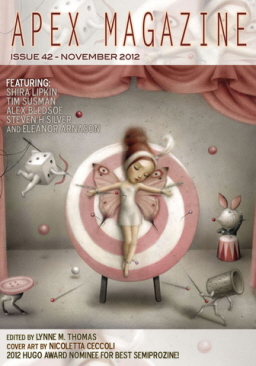
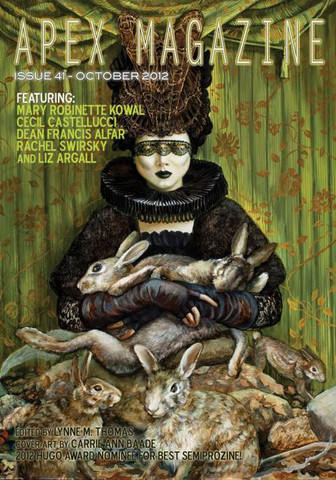 Yearly subscriptions are available through the Apex website and Weightless Books. For $17.95, $2.00 off the normal subscription rate, you can have 12 months of Apex Magazine delivered to you in the file format of your choice: ePub, mobi, or PDF. That’s at least 24 brand new short stories dropped into your eager little hands for the price of an anthology. Plus, you get the reprints, poetry, nonfiction and interviews. Quite a deal, right?
Yearly subscriptions are available through the Apex website and Weightless Books. For $17.95, $2.00 off the normal subscription rate, you can have 12 months of Apex Magazine delivered to you in the file format of your choice: ePub, mobi, or PDF. That’s at least 24 brand new short stories dropped into your eager little hands for the price of an anthology. Plus, you get the reprints, poetry, nonfiction and interviews. Quite a deal, right?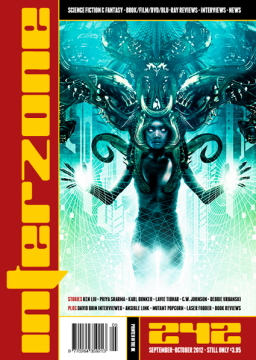
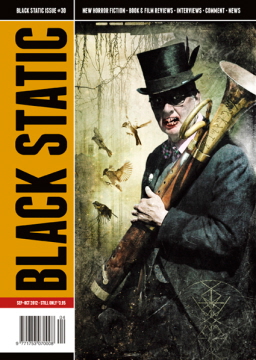
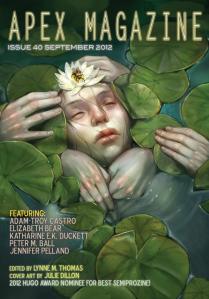 Apex Magazine turns 40 with its September issue, featuring
Apex Magazine turns 40 with its September issue, featuring 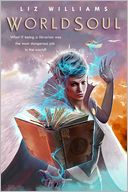 Worldsoul
Worldsoul